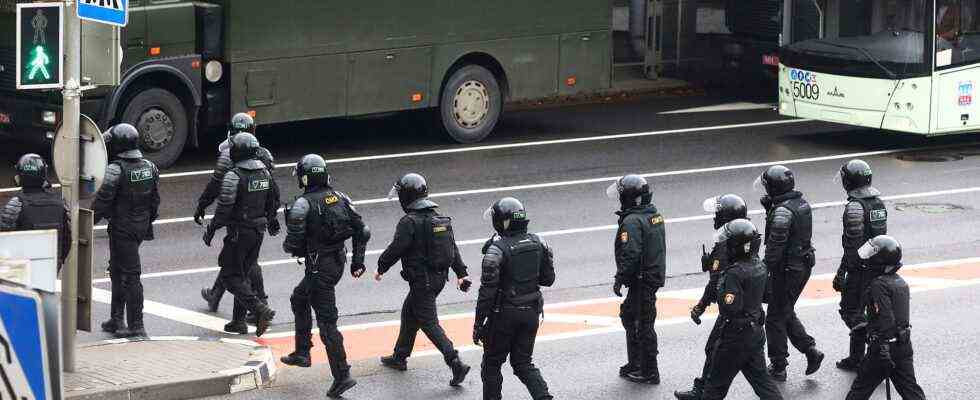Status: 07/14/2021 6:27 p.m.
The authorities in Belarus have massively tightened their crackdown on the media and activists. There have been dozens of raids across the country. The opposition speaks of a “wave of repression” with which the regime is cracking down on them.
In Belarus, according to activists, officials raided the offices and homes of human rights activists and journalists across the country and arrested several employees. As the human rights organization Vyasna announced, the offices in the capital Minsk and the homes of at least five of its members in Minsk and other places were affected.
The opposition spoke of “massive purges”. There has been a wave of raids, arrests and seizures of technology in the country. A total of 16 organizations were affected by the “wave of repression,” it said. Activists, journalists and civil rights activists have been taken away.
Andrei Bastunez, head of the Belarusian Association of Journalists, spoke of the “most aggressive assembly line of repression in the modern history of the country that has been set in motion”.
The whereabouts of the activists is unclear
According to Vyasna, activist Viktor Sasonov’s apartment in the western city of Grodno was searched. The officers had “taken” him, his whereabouts were unclear. In the city of Orsha near the Russian border, Igor Kasmerchak, activist and editor of the website orsha.eu, was arrested. The head of the Belarusian Helsinki Committee, Oleg Gulak, wrote on the online network Facebook that the organization’s office door had been “broken into”.
The Belarusian journalists’ association and a refugee organization in the country also reported raids. Andrei Poludy, head of an organization fighting against the death penalty, was apparently arrested at his home.
Dozens of journalists in custody
Employees of the newspaper “Nascha Niwa”, which has been banned by the authorities, were also affected. A total of 39 journalists are currently in custody, either waiting for a court hearing or sentenced to prison terms.
At the beginning of the month, the Belarusian Committee for State Security (KGB) announced a large-scale operation, the purpose of which was to “cleanse the country of individuals with radical convictions”. On Tuesday, the authoritarian ruling President Alexander Lukashenko announced that he would bring 1,500 organizations and journalists to account that were “financed from abroad”. They caused unrest and “promoted terror instead of democracy” in Belarus.

